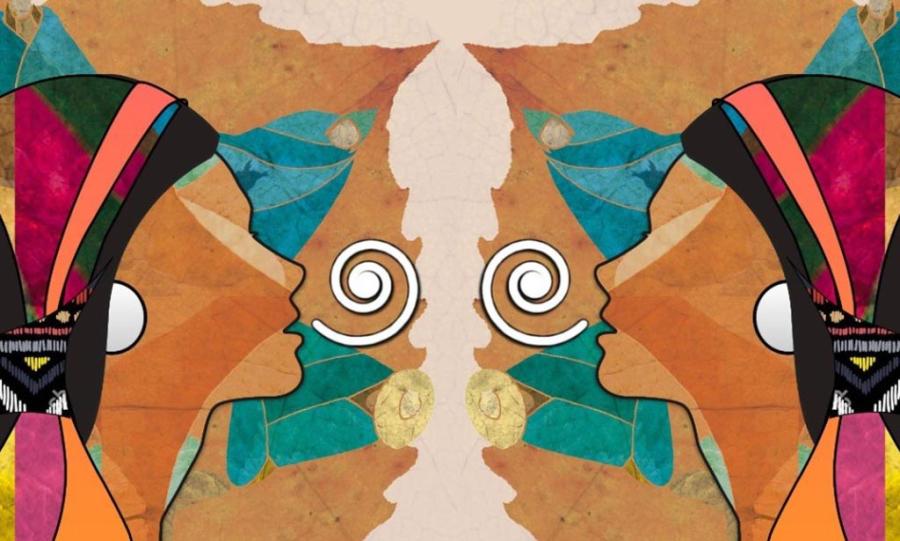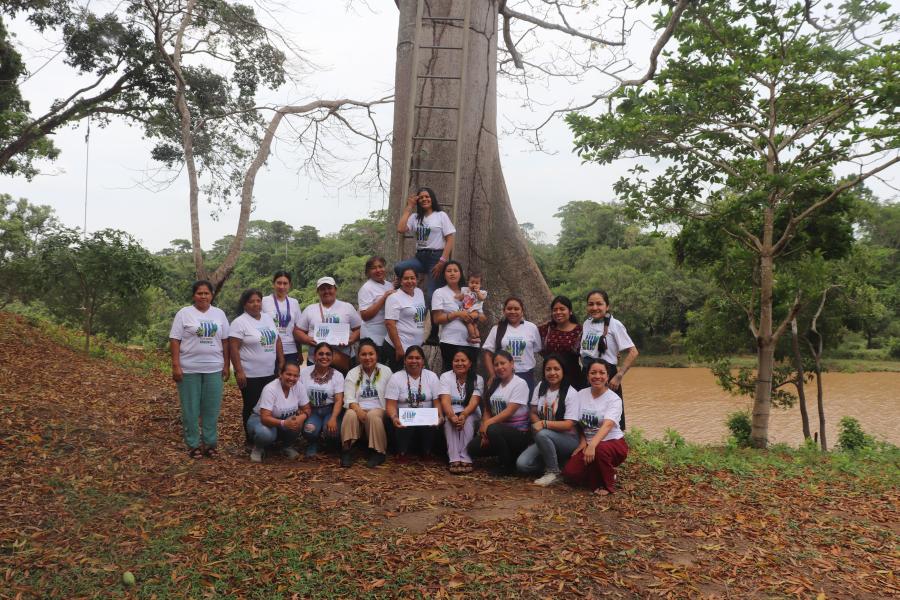Viktor Kaisiepo has become a familiar face to indigenous activists throughout the world, representing the indigenous peoples of Papua at various international fora. He is a member of Presidium Dewan Papua and represents the organization in Europe, the United States, and at the United Nations. Since 2003, he has served as a consultant to the World Bank Grants Facility for Indigenous Peoples. Cultural Survival Quarterly Managing Editor Tara Tidwell spoke with Kaisiepo in May during the third session of the U.N. Permanent Forum on Indigenous Issues.
When the Native Americans in 1977 came to the commission of human rights and called for the establishment of a working group, to me that was the most important moment. It took the United Nations five years to do so, and now we have an annual meeting of the Working Group on Indigenous Populations. It’s just like dropping a stone in the lake. The effects slowly ripple. For one indigenous nation results arrive in 1993, for another one in 2003.
In 1982, indigenous people were engaged in the Working Group, and we were encouraged to annually give the Working Group input on recent developments in their home situation. It slowly grew to become a human rights body, but it was not a full human rights commission. People were complaining, but they should not complain. They should take the floor and say what is happening, and maybe suggest a solution—take a slightly different stand but still have the same message, and not be confrontational. If you are confrontational and you are complaining then you are using the wrong platform, because the Working Group is meant to establish standards. Any recent development that may contribute to the standard-setting process will be welcome, but if it’s a complaint then it will be difficult because the Working Group does not have a mandate to act as a commission on human rights.
The United Nations is an institution which is composed of governments—the same governments that are making problems back home or supporting you back home. It is the summit of everything we are trying to do. What’s important is that it’s a legal international mechanism provided to indigenous people to raise their concerns.
Measuring Success at the U.N.
Sometimes I wish I were a carpenter, because if I were a carpenter, at the end of two or three days I could say, “Here’s a chair.” But in the field of human rights how do you measure success? Some people feel empowered by being part of the U.N. process, and others say, well I’ve been here 10 years but still nothing has changed.
In 1993 we had the International Year of the World’s Indigenous People, and the second World Conference on Human Rights in Vienna, where we asked for the establishment of a permanent forum at the highest possible level within the U.N. system—an advisory body to ECOSOC [U.N. Economic and Social Council]. So if you measure success within the U.N. system, have we gained momentum? Yes. The playing ground has changed a lot. The U.N. Permanent Forum on Indigenous Issues, apart from its main task of advising ECOSOC regarding indigenous peoples’ rights, is also the playing ground for U.N. agencies, so indigenous people who participate don’t address their concerns only to the Permanent Forum; they also directly speak to UNIFEM [U.N. Development Fund for Women], UNICEF [U.N. Children’s Fund], UNESCO [U.N. Educational, Scientific, and Cultural Organization], UNDP [U.N. Development Program], and the World Bank as inter-governmental institutions that are responsible for the execution and implementation of these recommendations. When you want to have an analysis of the maternity health situation for women, you don’t ask the Permanent Forum to do that but you speak to UNIFEM or to UNDP, where they can take a proactive policy. So the Permanent Forum is where you can influence certain policies.
For example, during this session of the Permanent Forum we discussed with the UNDP the organization’s eight Millennium Development Goals and we showed them the obstacles in this process. We told them, “Water is very vital, but if you build a dam and you re-route the water then people downstream won’t get any water. And then you say that we should fight poverty. But how do we fight poverty if this is what you’re doing?” Here at the Permanent Forum we can confront the policies that have been designed by either governmental or inter-governmental organizations regarding access for indigenous people. Before it was difficult to get access to the UNDP, but now it is quite simple. They are here to present to the indigenous people what they are doing, because again they are an agency of the governments, not necessarily of indigenous people. But if you talk development, it must be holistic, meaning everything should be in there, including disabled people, scientific work, private sector input, indigenous people—otherwise it won’t work because it will only reach seven-eighths of the group, and one eighth is missing.
The Permanent Forum’s first meeting in 2002 was poorly equipped technically, but there was nobody to turn to. Now you have computers everywhere and everyone is on the internet writing home. You can now talk to people from the World Bank and speak to government members at the United Nations who are sympathetic to the cause. So there has been a huge progress when you look back over the years. Let me put it this way: If I am a member of the liberation movement, 22 years down the road I’m still occupied. Is that a success? Is that a failure? According to my own objectives it is a failure because I am still occupied, but in terms of building international networks and support I’ve gained a lot. Like I said, when you throw the stone in the Pacific Ocean, one day down the road the waves will come to the shore. So, I think, the people that are here, they will gain a lot of experience, a lot of knowledge.
I don’t think this first International Decade of the World’s Indigenous People will be a clear indicator of the success of the indigenous movement, but during this decade we will have accumulated a lot of information, and generated a lot of interaction. The best way to see whether there are big results or not is to wait for the second decade. Whether it’s declared a second International Decade by the United Nations or not, the results of the first International Decade will be seen in the next 10 years. Some people became involved in the beginning, some a quarter of the way down the road, some halfway down the road, some three-quarters down the road. Consider, for example, the relationship between my organization and the World Bank. Before, the Bank didn’t have anything to do with my organization because I couldn’t connect with them until recently. Now that they know about us they will arrive to work with us next year, but then the decade is over. So for many indigenous peoples’ organizations out there, the next decade will be much more meaningful.
Getting Recognized at the European Union
One of the important things is that the European Union just halfway into the decade signed a policy regarding indigenous people. They used the U.N. Draft Declaration on the Rights of Indigenous Peoples so they didn’t have to develop their own systems. That is another battlefield where we have to go—to the European Union—and say listen, this is what we want. But the European Union is not the same as the United Nations. The European Union has its own money. It has its own bureaucracy, but if they want to fund a project for indigenous people, they can make the decision in no time, and off it goes. At the United Nations you have to go to 200 members and ask them one by one, and the European Union is only 15 members. So that’s a big difference, and it’s an important additional institution for the support of indigenous peoples’ rights.
I think the European Union will prove to be at least as effective for indigenous peoples as the United Nations in the next decade, yet we don’t have an annual meeting with the E.U. to discuss indigenous people’s rights. That is something that in the next decade will probably be developed, because the E.U. will be confronted with proposals from the indigenous community. The intergovernmental organizations are watching; they are looking at each other and asking, what are you doing, and how are you doing it, and why are you doing it, and with whom are you doing it?
Needs for the Next Decade
There are indigenous peoples who need to be reached in the next decade who haven’t been reached yet. Those who are at the Permanent Forum, you can recognize the faces; they are always the same. But as a result of Permanent Forum themes like indigenous youth and children [the theme of the second meeting of the Permanent Forum in 2003], particular groups are being focused on more and more. You do not see disabled people here, but they should also be here, because in their own countries they are being discriminated against because they are disabled and if they are indigenous then they are double discriminated, and if they are women they are triple discriminated. You have to see them here at the Permanent Forum; this is the forum where they should come. The theme of the Permanent Forum very much determines who will be coming to the United Nations. I think the next decade will be, should be, more of a working decade rather than a decade where we come and repeat ourselves.
You need capacity-building processes for indigenous peoples. Do I understand my rights properly; do I understand the mechanisms made available to me? How do I utilize them, when am I supposed to utilize them, and whom do I have to address? When people come to the United Nations, they think, well, when I address them, that’s the end of the story. No, it’s the beginning of the story. And if you don’t understand how to proceed within the system, then it is difficult to be effective because it’s a bureaucratic system. The governments are already bureaucratic, but the United Nations is much more bureaucratic. People’s enthusiasm the first day will die the first minute they enter the general meeting room. So I’m sure there’s a lot of people out there still lost on how to go about it.
The first year of the Permanent Forum I attended just to celebrate. People said “You don’t make any intervention?” I said no. If you have a victory you have to celebrate, otherwise you continue going as if nothing happened, nothing changed. Things are changing for the better and you must appreciate that. When you meet moments like we did, in 1993, when we asked for the establishment of the Permanent Forum, and in 2002 it was established—within 10 years—then that is a great success. And you have to celebrate it.
This narrative was transcribed by Meredith Kravitz and edited by Tara Tidwell.


